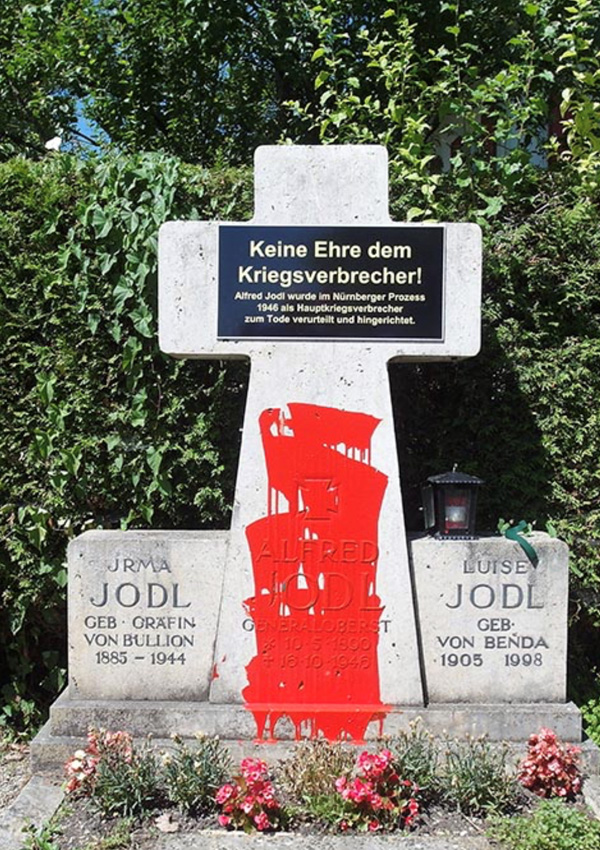
In times of historical revisionism, it is these fundamental questions that we as a society have to deal with. Do we want to continue to give space to racism and fascism in our cities through large monuments, do we want to hide them or should we not at least demand the transformation into places of encounter, resistance, art and culture?
Location: Q1 – Eins im Quartier – Haus für Kultur, Religion und Soziales, Halbachstraße 1, 44793 Bochum, Germany
Admission: 6.30 p.m.
End: 8.30 p.m.
(Please note that masks are compulsory)
In times of historical revisionism, it is these fundamental questions that we as a society have to deal with. Do we want to continue to give space to racism and fascism in our cities through large monuments, do we want to hide them or should we not at least demand the transformation of these monuments into places of encounter, resistance, art and culture and sharing?
We have invited two experts who have been dealing with war memorials for years to find answers to these questions: Klaus-Peter Klauner (Brühl) and Wolfram Kastner (Munich). If you are also interested in these questions, please feel free to come to Q1 in Bochum on July 7, 2022 at 6:30 pm (start is 7:00 pm). We are looking forward to a vivid discussion!
“Take down the war memorials! Create civilian peace and reconciliation monuments out of this very material with those affected on all sides – commemorate the victims and at the same time the people who stood up for freedom, justice and humanity, across all borders and times.”
⏤ Klaus-Peter Klauner
“I was educated to be obedient like everyone in this country. But I can’t look away.”
⏤ Wolfram Kastner
Klaus-Peter Klauner (journalist, Cologne), born in 1952 in the north of Germany, studied communications engineering in Bingen (Rhine) and worked in film and video technology at WDR from 1979. In 1993, alongside Monika Hauser, he is involved in the founding of the women’s rights organization medica mondiale; their life together from this point on already revolves around issues such as war, sexualized violence and patriarchal structures. In 2000, Klauner begins studying again, this time in the field of social pedagogy. After taking early retirement in 2014, he again devotes himself to the topics of war and violence, this time initially in his own family history. On this basis, the website kriegerdenkmal.org was created, on which Klauner continues to deal extensively with war memorials and advocates for a change in the German culture of remembrance.
Wolfram Kaster (artist, Munich), born in Munich in 1947, studied German language and literature, psychology, art history and sociology at the Academy of Fine Arts in Munich. Active as a freelance artist from 1979, he caused sensation through public action art and interventions. This reached a climax in 1994 with a campaign to commemorate the book burnings of 1933. After working as a lecturer at various universities, Kastner dealt intensively with Nazi history. In 2011, he received the Hans Frankenthal Prize of the International Auschwitz Committee for his work against the suppression of Nazi crimes from public awareness. Kastner attracted further attention through his actions in 2015 and 2016 by artistically altering the monument to Wehrmacht General Jodl.
Moderator
Tobias Fetzer M.A. (historian, Fritz Bauer Forum, Bochum), studied religious studies and history at the Ruhr University in Bochum. His research here focused on the social movements of the modern era. In his master’s thesis he investigated how actors from the city, the state and the social movement remember the time of the squatter movement in Bochum. The examination of the memory of this movement is also the topic of his dissertation project, which began in 2020. In addition to research work, he is responsible for the virtual implementation of the project “When I leave my office, I enter hostile territory” at the Fritz Bauer Forum.